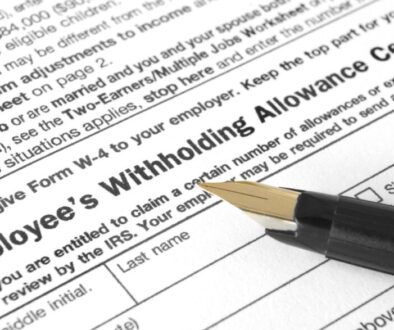Understanding the Ins and Outs of Excise Taxes
Understanding the Ins and Outs of Excise Taxes
In this extensive article, we’ll delve into the intricacies of excise taxes, exploring their purpose, structure, and impact on both consumers and businesses. We’ll examine the various types of excise taxes, how they are calculated, and the rationale behind their implementation. Additionally, we’ll discuss the role of excise taxes in shaping consumer behavior and generating revenue for governments. By the end of this article, you’ll have a thorough understanding of this unique form of taxation and its implications in the broader economic landscape.
What are Excise Taxes?
Excise taxes are a type of indirect tax that is levied on the production, sale, or use of specific goods or services. Unlike sales taxes, which are applied broadly to all retail transactions, excise taxes are targeted at particular products or activities. These taxes are often used to discourage the consumption of certain items, such as tobacco, alcohol, or fuel, or to raise revenue for specific government programs.
Excise taxes are typically levied at the manufacturer or distributor level, rather than at the point of sale. This means that the tax is included in the price of the product, and consumers pay the tax indirectly when they purchase the item. The amount of the excise tax is usually based on the quantity or value of the product, rather than a percentage of the overall sale price.
Types of Excise Taxes
Excise taxes can be categorized into several different types, each with its own unique purpose and application. Some of the most common types of excise taxes include:
Luxury Taxes
Luxury taxes are applied to high-end or non-essential goods and services, such as expensive jewelry, private aircraft, or luxury vehicles. These taxes are designed to generate revenue from the consumption of these premium items.
Sumptuary Taxes
Sumptuary taxes are levied on products that are considered to be luxurious or harmful to public health, such as tobacco, alcohol, or gambling. These taxes are often used to discourage the consumption of these goods and to raise revenue for related public health programs.
Environmental Taxes
Environmental taxes are designed to encourage environmentally friendly behavior and to raise revenue for environmental protection and conservation efforts. Examples include taxes on carbon emissions, energy-efficient vehicles, or single-use plastics.
Transportation Taxes
Transportation taxes are levied on the use of certain modes of transportation, such as fuel taxes, vehicle registration fees, or tolls. These taxes are often used to fund the construction and maintenance of transportation infrastructure.
Sin Taxes
Sin taxes are a type of excise tax that is applied to products or activities that are considered to be socially undesirable or harmful, such as tobacco, alcohol, or gambling. These taxes are often used to discourage the consumption of these goods and to raise revenue for related public health programs.
How are Excise Taxes Calculated?
Excise taxes can be calculated in a variety of ways, depending on the specific product or activity being taxed. Some common methods of calculating excise taxes include:
Per-Unit Taxes
Per-unit taxes are based on the quantity of the product, rather than its value. For example, a tax of $1 per pack of cigarettes or $0.50 per gallon of gasoline.
Ad Valorem Taxes
Ad valorem taxes are based on the value of the product, rather than its quantity. These taxes are typically calculated as a percentage of the product’s price, such as a 10% tax on the sale of luxury vehicles.
Mixed Taxes
Mixed taxes are a combination of per-unit and ad valorem taxes, where the tax is calculated based on both the quantity and the value of the product. For example, a tax of $0.50 per gallon of gasoline plus a 5% tax on the price of the fuel.
Rationale for Excise Taxes
Governments often implement excise taxes for a variety of reasons, including:
- Revenue Generation: Excise taxes can be a significant source of revenue for governments, providing funding for essential public services and programs.
- Behavioral Modification: Excise taxes can be used to discourage the consumption of certain products or activities that are deemed harmful to public health or the environment, such as tobacco, alcohol, or fossil fuels.
- Externality Correction: Excise taxes can help offset the negative externalities associated with certain products or activities, such as the social and environmental costs of pollution or excessive consumption.
- Equity Considerations: Excise taxes can be used to target specific segments of the population, such as high-income individuals or luxury consumers, in an effort to promote a more equitable tax system.
- Funding Specific Programs: Revenues generated from excise taxes can be earmarked for specific government programs or initiatives, such as transportation infrastructure, healthcare, or environmental protection.
Impacts of Excise Taxes
Excise taxes can have a significant impact on both consumers and businesses, affecting a wide range of economic and social factors:
Impact on Consumers
- Increased Prices: Excise taxes are often passed on to consumers in the form of higher prices, which can impact their purchasing power and overall cost of living.
- Behavioral Changes: Excise taxes can lead to changes in consumer behavior, such as reduced consumption of the taxed products or a shift towards alternative, less-taxed options.
- Equity Concerns: Excise taxes can disproportionately burden low-income consumers, who may have fewer options to avoid the tax or substitute the taxed products.
Impact on Businesses
- Increased Costs: Businesses that produce or sell taxed products may face higher costs, which can impact their profitability and competitiveness.
- Compliance Challenges: Businesses must comply with the regulations and reporting requirements associated with excise taxes, which can add administrative and operational burdens.
- Market Distortions: Excise taxes can create market distortions, leading to changes in production, distribution, and pricing strategies for businesses in the affected industries.
Excise Taxes and Government Revenue
Excise taxes are an important source of revenue for governments at all levels, from federal to state and local. The revenue generated from these taxes is often used to fund a wide range of public services and programs, including:
- Transportation infrastructure: Fuel taxes and vehicle-related excise taxes can provide funding for the construction and maintenance of roads, bridges, and other transportation infrastructure.
- Public health and social programs: Revenues from excise taxes on tobacco, alcohol, and other “sin” products can be used to fund public health initiatives, substance abuse treatment, and other social welfare programs.
- Environmental protection and conservation: Excise taxes on products with environmental impacts, such as carbon emissions or single-use plastics, can generate revenue for environmental protection and conservation efforts.
- General government operations: Excise tax revenues can also be used to support the general operations of government, including the provision of public services, the funding of government agencies, and the implementation of various policies and programs.
Excise Tax Compliance and Reporting
Businesses that are subject to excise taxes must comply with a range of regulatory requirements, including:
- Registration and Licensing: Businesses that manufacture, distribute, or sell products subject to excise taxes may be required to register with the relevant tax authority and obtain specific licenses or permits.
- Reporting and Payment: Businesses must regularly report their excise tax liabilities and submit the appropriate payments to the tax authority, often on a monthly or quarterly basis.
- Record-keeping: Businesses must maintain detailed records of their excise tax-related activities, including the production, sale, and distribution of the taxed products, to ensure compliance with reporting requirements.
- Audits and Inspections: Businesses may be subject to periodic audits or inspections by the tax authority to verify their compliance with excise tax regulations and to ensure the accuracy of their reported liabilities.
Failure to comply with excise tax regulations can result in significant penalties, fines, and other enforcement actions, so it is crucial for businesses to understand and adhere to the applicable requirements.
Excise Tax Exemptions and Credits
In some cases, businesses or consumers may be eligible for excise tax exemptions or credits, which can help to reduce the overall tax burden. Some common examples include:
- Exemptions for Certain Products: Some products, such as those used for agricultural or industrial purposes, may be exempt from excise taxes to support specific industries or economic activities.
- Credits for Renewable Energy: Businesses that invest in renewable energy technologies, such as solar or wind power, may be eligible for excise tax credits to encourage the adoption of these environmentally-friendly technologies.
- Refunds for Exported Goods: Businesses that export products subject to excise taxes may be eligible for refunds or drawbacks on the taxes paid, to avoid double taxation and support international trade.
- Low-Income Consumer Assistance: In some cases, governments may provide excise tax credits or other forms of assistance to low-income consumers to help offset the impact of these taxes on their household budgets.
Understanding the available exemptions and credits can be crucial for businesses and consumers to minimize their excise tax liabilities and ensure they are taking advantage of any applicable tax-saving opportunities.
The Future of Excise Taxes
As governments continue to grapple with a range of economic, social, and environmental challenges, the role of excise taxes is likely to evolve and adapt to emerging trends and priorities. Some potential future developments in the excise tax landscape include:
- Increased Focus on Environmental Taxes: With growing concerns about climate change and sustainability, governments may expand the use of excise taxes to incentivize environmentally friendly behaviors and generate revenue for green initiatives.
- Adaptation to Technological Advancements: As new technologies, such as electric vehicles or alternative fuels, emerge, governments may need to rethink their excise tax structures to ensure they remain relevant and effective.
- Coordination and Harmonization: Increased globalization and cross-border economic activity may drive greater coordination and harmonization of excise tax policies among countries, to facilitate trade and reduce compliance burdens for businesses.
- Targeted Approaches: Governments may explore more targeted and nuanced excise tax policies, tailored to specific industries, products, or consumer segments, to achieve their desired policy objectives more effectively.
- Emphasis on Equity and Fairness: Policymakers may place greater emphasis on the equity and distributional impacts of excise taxes, seeking to ensure that these taxes do not disproportionately burden low-income or marginalized communities.
As the landscape of excise taxes continues to evolve, businesses, consumers, and policymakers will need to stay informed and adaptable to navigate the changing regulatory environment and its implications for their respective stakeholders.
Conclusion
Excise taxes are a unique and complex form of taxation that play a crucial role in shaping economic, social, and environmental outcomes. By understanding the various types of excise taxes, their calculation methods, and the rationale behind their implementation, businesses and consumers can better navigate the regulatory landscape and make informed decisions.
As governments continue to leverage excise taxes to address a range of policy objectives, from revenue generation to behavioral modification, it is essential to remain attuned to the evolving trends and potential future developments in this dynamic area of taxation. By staying informed and adaptable, stakeholders can position themselves to effectively manage the impacts of excise taxes and capitalize on any available opportunities or exemptions.




